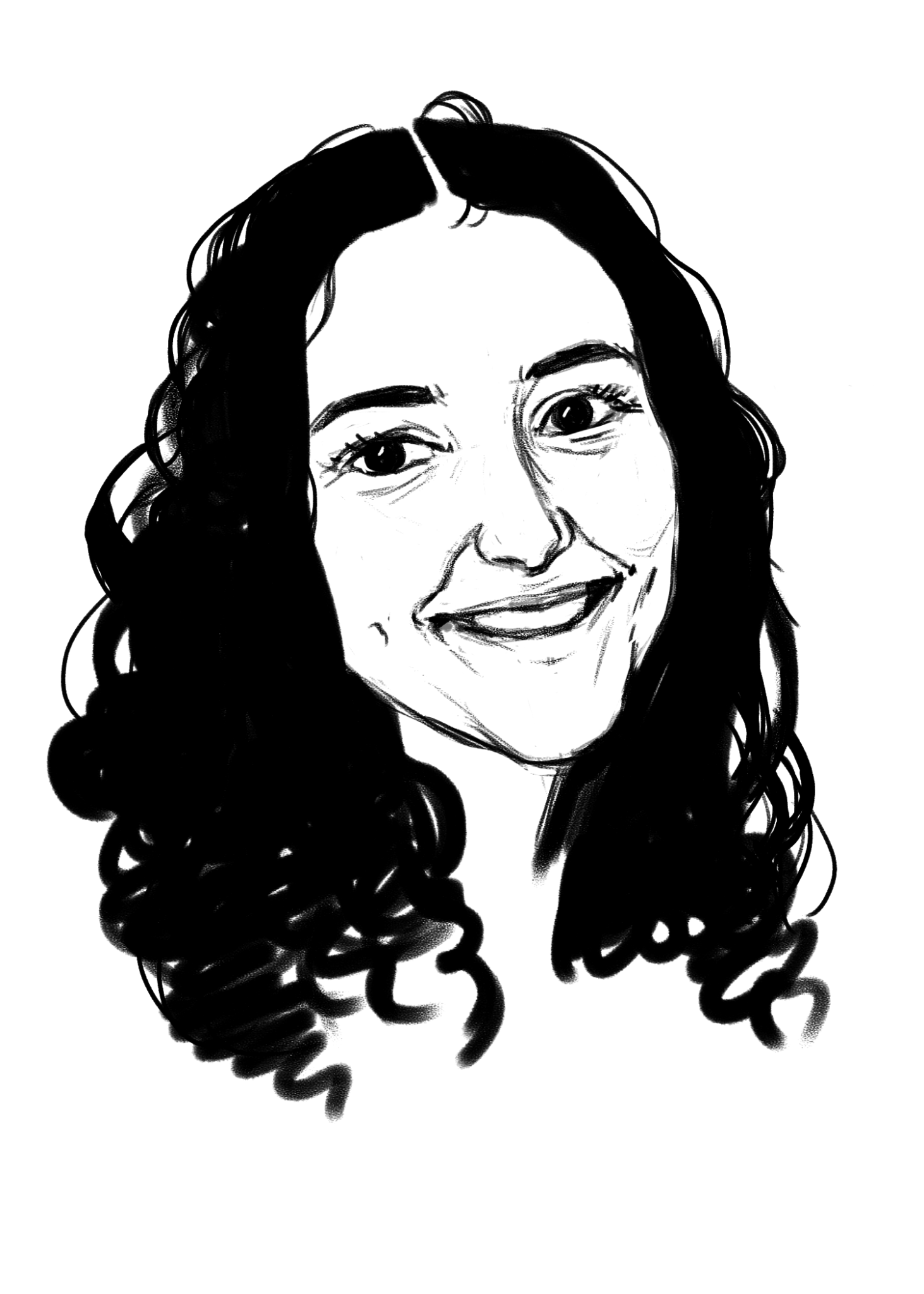
Annie Yan
My first impression of Dr. Laurie Santos was not positive. It occurred during my Intro to Cognitive Science class, when Santos gave a guest lecture. She discussed her research in the Comparative Cognition Lab, where she studies the relationship between canine, non-human primate and human cognition. The lecture was on the last day of class before fall break, and I was very sick. I pretty much tuned out the whole lecture, focusing instead on keeping my lungs inside of my body. I maybe fell asleep. It’s a bit fuzzy. All I remember from the lecture is being scared shitless when Dr. Santos suddenly started howling like a baboon. It certainly woke me up from my cold fog, and I tried my best to pay attention to the rest of the talk.
When questions about Santos’s lecture came up on our last exam, my mind went blank. At the time, I thought it was my fault that I hadn’t retained the information. After all, Santos’s class, “Psychology and the Good Life,” was the most popular course in Yale’s history. She obviously had to be a compelling lecturer for that many students to stick with her. Since listening to her podcast “The Happiness Lab,” however, I’ve begun to realize that perhaps Laurie isn’t the star of the show.
In the first episode of the podcast, Santos starts off with a bit about college acceptance. Students who seem so elated after receiving their admission decision often arrive at college and begin to lose their joy. Santos then describes a loss of joy she experienced in her own, despite having established a successful career at Yale. This led her to create “Psychology and the Good Life,” with the hope of improving students’ mental health. I understand that the class is what made Santos famous enough to have her own podcast, but it does feel like we’re beaten a bit over the head with it. In every episode, she mentions the class at least once. That would be fine if it was woven in naturally. Every time the class is mentioned though, it feels a bit less natural. When she played sound bites of raucous applause from the class, it felt ego-gratifying and out of place.
The actual information in the podcast is quite interesting. I’m still considering a major in Psychology, and listening to “The Happiness Lab” reminded me why. The way that Santos and her guests dive into deep issues related to happiness and the mind is both engaging for those interested in the science and accessible to those simply wanting to lead a better life.
In AP Psychology during high school, we learned about pop psychology, which is made up of theories and concepts framed in such a manner that a Facebook article could be written about them. You know those articles that your Aunt Linda shares about doctors discovering the area of the brain that deals with margaritas and margaritas only? Yeah, that’s pop psychology at its finest.
I first thought that Santos’s podcast would be all style and no substance. I actually found myself learning a lot. In the episode surrounding Olympic athletes and happiness, I learned that the way we compare ourselves to others is damaging our self-esteem. Wow! (This sounds sarcastic, but I swear it’s not. I’m not sure why this fairly basic concept was so impactful to me. Maybe it was because Michelle Kwan was saying it.)
I think I’m going to keep listening to “The Happiness Lab.” It’s a compelling listen, especially in moments when I feel like I want to improve my life without making any tangible change. Even though the ad breaks are very annoying — three per episode (UGH) — I found myself enjoying the podcast overall. Santos isn’t necessarily the most compelling host for a podcast. I think she is a much better lecturer, despite The Baboon Howling Incident. Still, the guests on her podcast — including David Byrne, Dan Gilbert, Alixandra Barasch — contribute valuable insights into and applications of her research. One of my biggest concerns before starting “The Happiness Lab” was whether the podcast was even necessary. Would it feel like an easy cash grab to capitalize on the success of a viral lecture course? To my surprise, it didn’t.
Camden Rider | camden.rider@yale.edu







